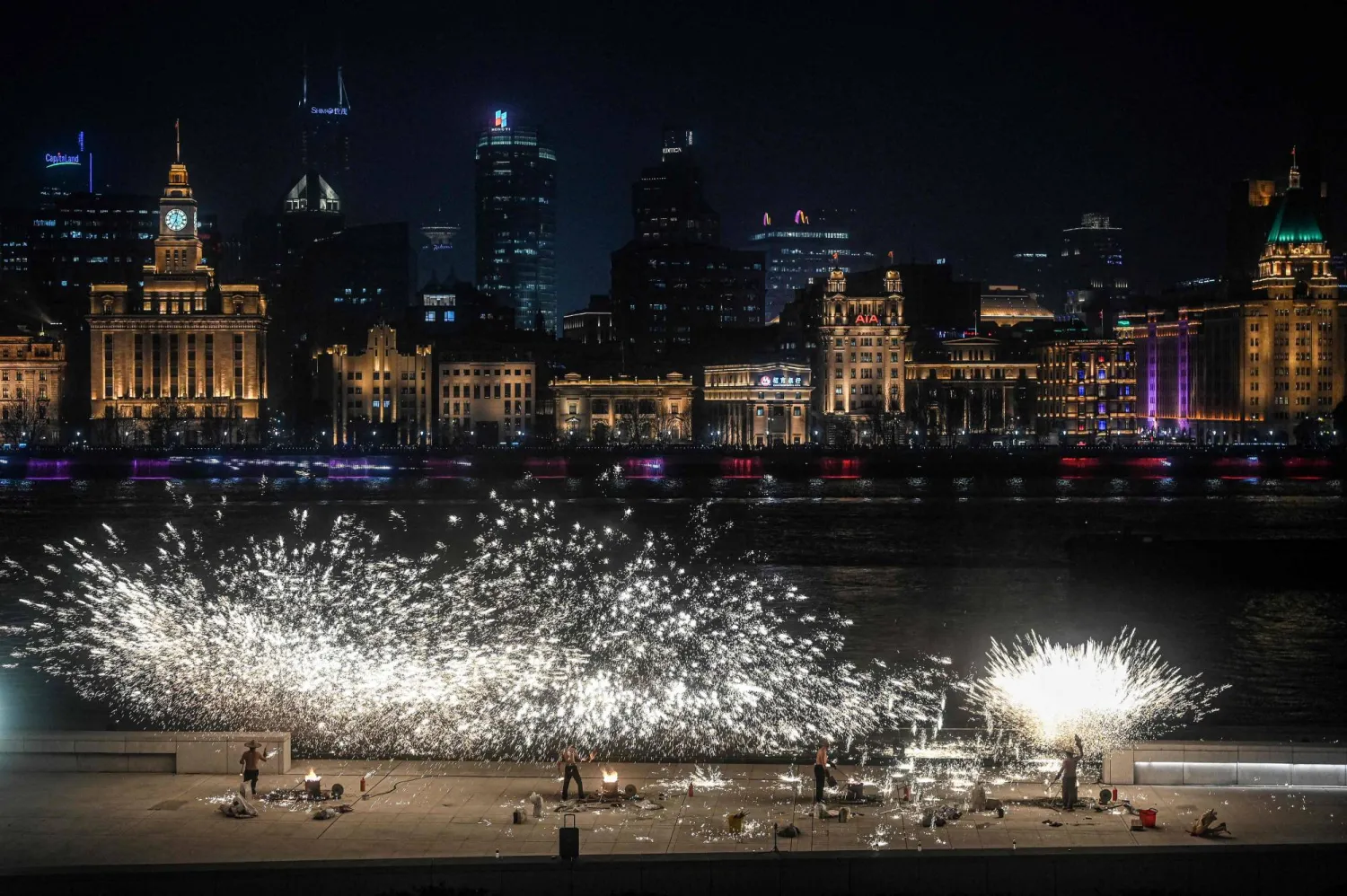A wedding reception on Sunday wrapped up the monthslong celebrations as the youngest son of Mukesh Ambani, Asia’s richest man, married his longtime girlfriend with a price tag running into the millions.
The newlyweds were cheered by friends and relatives at Mumbai’s Jio World Drive -- a convention center built and owned by the Ambani family — as part of the “Mangal Utsav” (a festival of Bliss), which marked what many have dubbed as the wedding of the year.
Anant Ambani tied the knot with Radhika Merchant, daughter of pharma tycoons Viren and Shaila Merchant. The wedding rituals, including exchanging garlands by the couple and walking around the sacred fire, began Friday and were completed early Saturday.
Former British Prime Ministers Boris Johnson and Tony Blair, as well as Kim and Khloe Kardashian, Priyanka Chopra and Nick Jonas, American wrestler and actor John Cena, Bollywood superstars Amitabh Bachchan, Shahrukh Khan and Salman Khan were among the celebrities who attended the ceremonies on Friday and Saturday.
India’s Prime Minister Narendra Modi blessed the newlyweds at a Saturday reception organized by the Ambanis, highlighting the billionaire’s rising clout.
“This is the final and the most auspicious ceremony and the last wedding in our family,” The Times of India newspaper quoted Mukesh Ambani. The Ambanis didn’t say how much they spent on the festivities that have been going on for months, The AP reported.
During a three-day pre-wedding celebration in March, Rihanna and Akon performed for a star-studded 1,200-person guest list.
A four-day European cruise in May featured on-deck concerts from the Backstreet Boys and Pitbull, followed by a masquerade ball where Katy Perry sang. At last week’s traditional music night in Mumbai Justin Bieber belted out his music hits.
The groom’s father, Mukesh Ambani, is the world’s ninth-richest man, with a net worth of $116 billion, according to Forbes. He is the richest person in Asia. His Reliance Industries is a conglomerate reporting over $100 billion in annual revenue, with interests that include petrochemicals, oil and gas, telecoms and retail.
The Ambani family owns, among other assets, a 27-story family compound in Mumbai worth $1 billion. The building contains three helipads, a 160-car garage and a private movie theater.
The groom, 29-year-old Anant, oversees the conglomerate’s renewable and green energy expansion. He also runs a 3,000-acre (about 1,200-hectare) animal rescue center in Gujarat state’s Jamnagar, the family’s hometown.
The bride, also 29, is the daughter of pharmaceutical tycoon Viren Merchant and is the marketing director for his company, Encore Healthcare, according to Vogue.
Ambani’s critics say his company has relied on political connections during Congress Party-led governments in the 1970s and ’80s, and under









